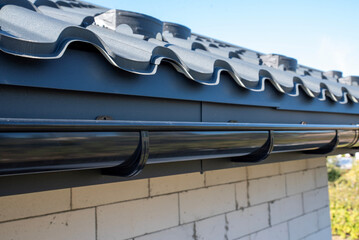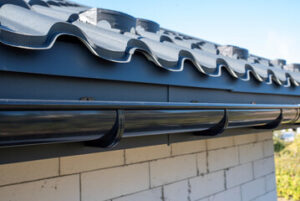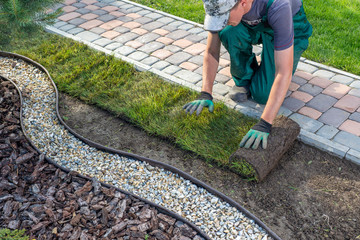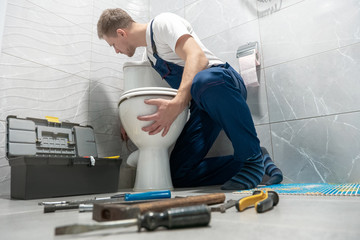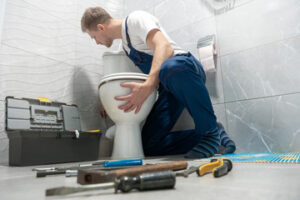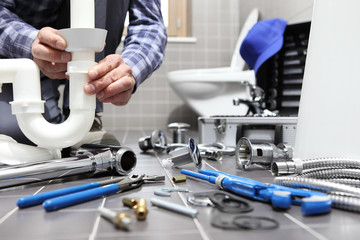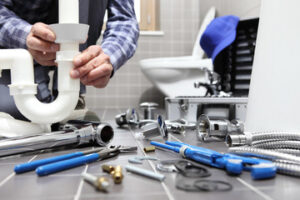Greensboro Commercial Landscaping Services involve the planning, designing, installation and maintenance of outdoor business spaces. This can include melding nature and concrete to create a welcoming atmosphere that projects the image the company wishes.
When you have separate commercial landscape contracts for lawn care, irrigation, construction projects and snow and ice management, it’s like having too many cooks in the kitchen. It can be confusing and time-consuming to review and compare bids.
Commercial landscapes create a positive first impression, enhance a property’s value and provide a comfortable environment for employees and customers. Landscape design services include site analysis, concept development and construction, planting and maintenance. They also consider the company’s culture and the needs of their target market to achieve a functional, appealing landscape that supports recruitment, productivity, and brand upholding, whether at one location or across multiple sites.
Unlike residential landscaping, which involves a lawn care service for a single home, commercial landscaping is more sophisticated. It is the fine-tuning of a commercial property’s landscape to convey a specific message and air to its visitors and potential clients. This may involve blending nature and concrete or even establishing a particular theme for the property’s overall design. The prerequisite skill, scope of work, permits and other elements can vary significantly.
A commercial landscaper must understand the unique demands of working with a business, including its corporate culture, image, budget and objectives. The design process is often more comprehensive than residential services, as a commercial property requires an outdoor space that will be seen by the general public. It’s also an area that must be maintained on a regular basis and support the business’s marketing initiatives.
Some examples of a commercial landscaping’s design process are incorporating trees to promote privacy and provide shade, introducing plant species that will be resistant to the weather in the region, or using water features to add visual appeal and soothe the mind. In addition, the design can be used to highlight a company’s dedication to sustainability by including native plants or using water-efficient irrigation and soil.
A good commercial landscape company will have a team of experienced professionals that can handle every aspect of the project, from initial assessments to creative design solutions, ongoing maintenance and more. This helps to reduce the time businesses need to spend searching for different contractors, bidding and negotiating contracts. It also makes it easier to maintain a consistent and quality appearance throughout the property. This includes the front and back yard, entryways, parking lots, walkways, and other outdoor spaces.
Installation
Commercial landscaping is a broad term that encompasses more than just lawn care. It’s about fine-tuning the landscape of a business to project the image it wants on marketing and create a homely environment for employees and tenants. An excellent commercial landscape aims to meld nature and concrete with one another for a cohesive look that’s pleasing to all.
Whether you’re working with a small office park or large industrial complex, a clean landscape is essential to maintaining productivity and presenting a positive first impression. That’s why it pays to get ahead of things by hiring a commercial landscaping company to design and build a maintenance plan that keeps grass neatly trimmed, shrubs well-groomed, and trees pruned. This will keep your property looking sharp and upkeep costs at a minimum while also preventing health and safety issues for employees and tenants.
In addition, commercial landscaping services can help your property maintain its value by attracting and retaining clients and tenants. Studies show that people are more likely to patronize businesses with attractive and well-maintained grounds, making a positive impression on your customers before they even step inside.
As the year 2022 unfolds, more and more businesses are seeing the benefits of commercial landscaping. Not only does it improve their image by promoting employee wellbeing, but it also helps them uphold their brand at a single location or across multiple locations.
Another important difference between residential and commercial landscaping is that the prerequisite skill, scope of work, and permits can differ. This is because a commercial landscape could involve a whole building or an entire campus, and it’s important to work within any restrictions that apply.
When you choose one commercial landscape service to take care of all your needs, they’ll become familiar with your property. This means that if they notice any changes over time, they’ll be able to act on them quickly. They’ll know what fertilizer to use, when to mow, and which plants are best suited for your climate. They’ll weed and mulch throughout the season, and they’ll plant brightly colored flowers in spring, summer, and fall.
Maintenance
Commercial landscapes play a critical role in radiating your company’s first impression, providing an inviting and functional environment for employees and customers alike. Whether you’re looking to improve your commercial property or want to make a lasting impression on visitors, our team of expert landscapers can help with design, construction, and maintenance services.
Commercial Landscaping is a multifaceted business that covers all outdoor areas in commercial properties like office buildings, shopping centers, hotels, and parks. These areas are usually large and include grass, trees, flowers, and shrubs, as well as hardscapes like walkways and seating spaces. A commercial property with a carefully planned and maintained landscape will add to the aesthetics, provide environmental sustainability, and support employee health and productivity goals.
A well-planned and executed commercial landscape will not only improve the look of your business, but it will also increase its value. In addition to the obvious aesthetic benefits, a well-designed commercial landscape can reduce energy costs by reducing cooling requirements and lowering water usage.
Regularly scheduled landscaping services are important for the health and appearance of your business, as well as your staff and customers. Our expert landscapers can provide a variety of regular maintenance services including mowing, mulching, fertilizing, weeding, and tree trimming. We also offer specialized services such as erosion control and water management.
When choosing a commercial landscape service, it is important to select a professional who is reliable and punctual. Your landscape contractor should be able to communicate clearly and answer any questions you may have about their services. They should be able to give you an accurate quote for each service and explain the details of their plan.
It is also helpful if the same people are working on your commercial property to build relationships and understand the needs of the space. This is especially true if the same crews work on your facility regularly. This ensures that the crews will be able to address any specific needs of your commercial landscape and can prevent issues from becoming larger problems. In addition, it is important to ask for references to see what other clients have said about the company.
Irrigation
In commercial landscaping, efficient irrigation systems are a must. They protect your landscape from drought and ineffective watering by providing just the right amount of moisture to each plant at exactly the right time. The result is a healthy, vibrant, and aesthetically pleasing commercial property that impresses clients and visitors alike.
The first step in effective commercial landscape irrigation is determining how much water your plants and grass need. This is done by measuring the soil moisture content and examining vegetation health. Next, your landscape contractor will recommend a system that best meets your needs. Options include surface irrigation with sprinklers that distribute water across large areas, drip irrigation that applies moisture directly to the roots of each plant, and in-ground automatic watering for shrubs and flowers.
Once the right system is installed, your landscaper will make sure it’s properly set up and operated. They will take into account the size of your landscape and how each plant is positioned, as well as any slopes or hills that may be present on your property. This ensures that the right amount of water is being applied to each area, and prevents overwatering or running off into sidewalks and parking lots, where it can cause damage and pollution.
Finally, your commercial landscaper will schedule regular maintenance services to keep your property looking its best. This includes weekly or bi-weekly mowing, trimming and edging, seasonal color plantings, shrub pruning, and deep root fertilization to promote a stronger foundation for each plant. It’s also important to prepare for winter, which includes removing leaves and debris, prepping the lawn and irrigation system for cold weather, and performing a spring cleanup to repair any damage caused by the harsh elements.
A professional landscaping service is a valuable investment for your commercial property. It can enhance curb appeal, increase your property value, and help you attract customers, clients, and tenants. But to get the most out of your investment, you must choose the right landscape contractor. A reputable commercial landscaping company will have the experience and expertise to meet your unique needs and create a stunning property that will impress your guests, clients, and tenants.


